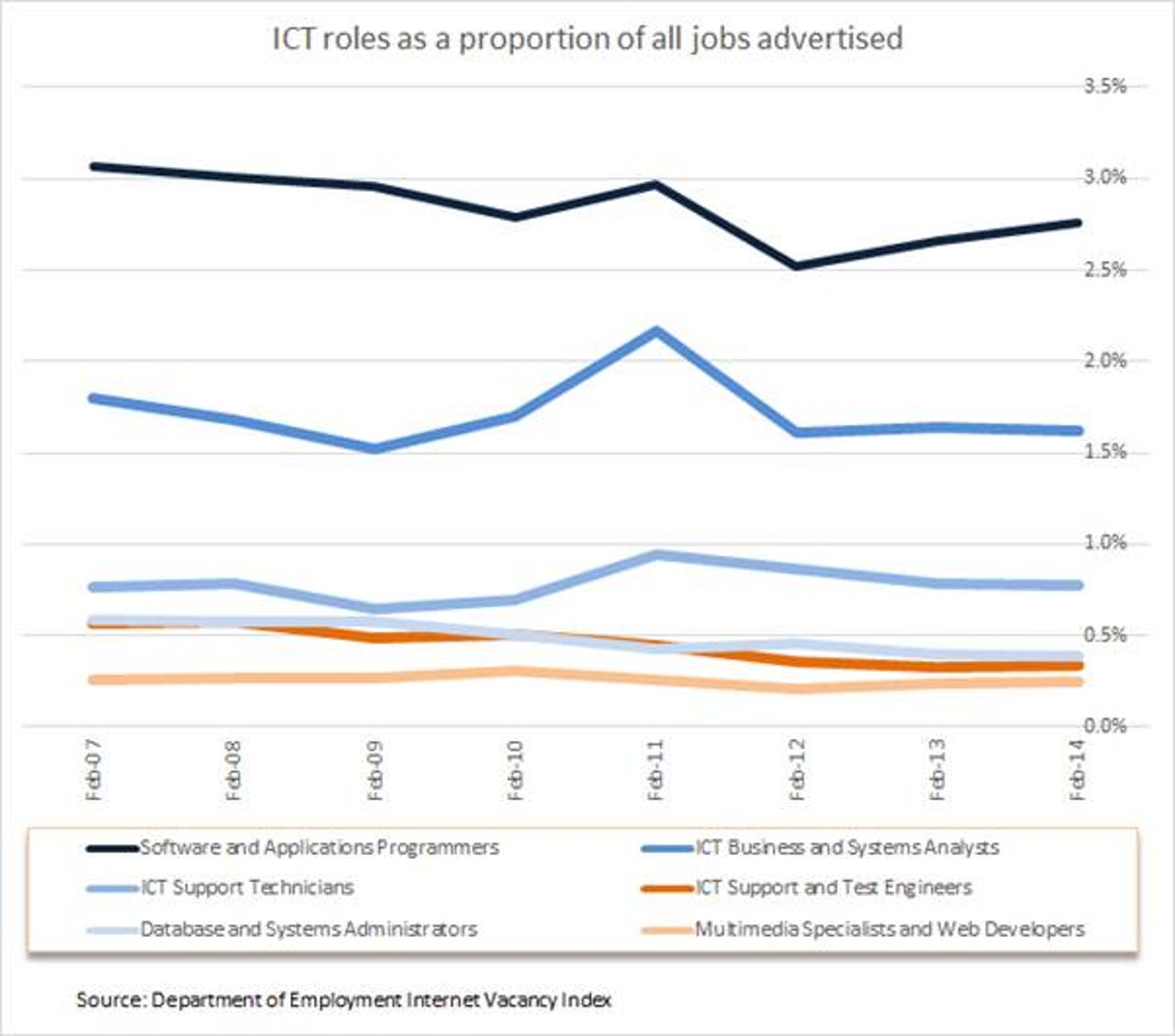Australia's future doesn't add up

The last year has brought some hope for job seekers in the ICT sector. In many roles, such as software and application programmers, there are more jobs advertised online than a year ago. In fact, according to data compiled by the Department of Employment, programming roles in February were 10 percent up. Most other ICT roles are also on the increase, mostly in line with the six percent rise in jobs across all sectors.
The question is, is it enough? Job advertisements are still well below pre-GFC levels. Demand for programmers is just over half where it was in February 2007, the same for business and system analysts.
Yet we're told repeatedly that the ICT industry will deliver exciting new ways for other industries to become more efficient. You'd expect that would mean some sort of structural shift, with jobs from those industries transferred to IT — not so.
The last year has seen big increases in advertisements for people in the health and education sectors, well above the average growth rate — jobs for nurses are 30 percent up. Clearly we're still doing the stuff that we're told will ultimately be replaced by clever systems, programmed by even cleverer people.
Slow change
Structural change can take time, of course, but if we are planning for that then you'd assume there would be unprecedented demand for business and systems analysts — the sort of people who can see where there's scope for improvement. That's not happening either. There were 2,494 online job ads in February 2014, up on last year but still well below the 4,488 advertisements in February just three years ago.
With all the talk of big data, driving smarter decisions for business, we might expect heavy demand for information professionals, yet the Department of Employment's Vacancy Report shows they've seen an 11 percent drop in jobs over the last year.
Are we missing a trick? It's hard to see that Australia is working smarter, despite calls for increases to productivity to offset our ageing population.
While IT might not be changing the shape of other industries, it is doing a good job of reinventing itself, with new technologies seemingly centralising many roles. Roles for software and application programmers, for example, are 20 percent up in NSW, around 6 or 7 percent in Victoria and Queensland, and on the slide as you head west. Roles in WA are a third down on last year, in part a reflection of changes in the mining sector, but also another indication that functions are centralising, increasingly in NSW.
Skills shortages
For years recruiters have been arguing there's a shortage of skilled people for emerging roles in the IT sector, yet there seems some doubt as to the extent of this. The Department of Employment's Skills Shortage List (PDF), published at the end of February, barely mentions IT. Meanwhile the Department of Immigration lists many roles in the sector in its Skilled Occupation List used to guide the applications of skilled migration. Business and systems analysts, software engineers, programmers, telecommunication field engineers, and network planners are all in there.
So who do we believe? It doesn't make sense to welcome in skilled migrants for roles that can easily be filled locally. But it does make sense to skill up the workforce to drive the structural change we've been talking about for years. That almost certainly means a drive to educate students — those digital natives who, with the right training — will see a better way of doing things. I wonder, though, whether the currently school curriculum recognises the significance of this task.
